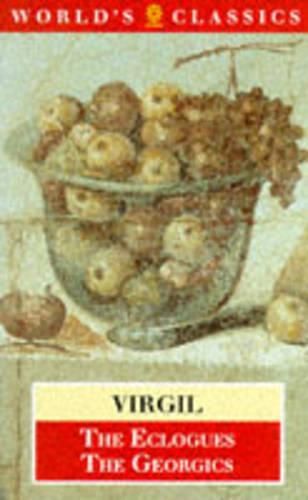Readings Newsletter
Become a Readings Member to make your shopping experience even easier.
Sign in or sign up for free!
You’re not far away from qualifying for FREE standard shipping within Australia
You’ve qualified for FREE standard shipping within Australia
The cart is loading…






The Eclogues
by Virgil
The Eclogues, also called the Bucolics, is the first of the three major works of the Latin poet Virgil.
Taking as his generic model the Greek Bucolica ( on care of cattle, so named from the poetry’s rustic subjects) by Theocritus, Virgil created a Roman version partly by offering a dramatic and mythic interpretation of revolutionary change at Rome in the turbulent period between roughly 44 and 38 BC. Virgil introduced political clamor largely absent from Theocritus’ poems, called idylls ( little scenes or vignettes ), even though erotic turbulence disturbs the idyllic landscapes of Theocritus.
Virgil’s book contains ten pieces, each called not an idyll but an eclogue ( draft or selection or reckoning ), populated by and large with herdsmen imagined conversing and performing amoebaean singing in largely rural settings, whether suffering or embracing revolutionary change or happy or unhappy love. Performed with great success on the Roman stage, they feature a mix of visionary politics and eroticism that made Virgil a celebrity, legendary in his own lifetime.
$9.00 standard shipping within Australia
FREE standard shipping within Australia for orders over $100.00
Express & International shipping calculated at checkout
The Eclogues
by Virgil
The Eclogues, also called the Bucolics, is the first of the three major works of the Latin poet Virgil.
Taking as his generic model the Greek Bucolica ( on care of cattle, so named from the poetry’s rustic subjects) by Theocritus, Virgil created a Roman version partly by offering a dramatic and mythic interpretation of revolutionary change at Rome in the turbulent period between roughly 44 and 38 BC. Virgil introduced political clamor largely absent from Theocritus’ poems, called idylls ( little scenes or vignettes ), even though erotic turbulence disturbs the idyllic landscapes of Theocritus.
Virgil’s book contains ten pieces, each called not an idyll but an eclogue ( draft or selection or reckoning ), populated by and large with herdsmen imagined conversing and performing amoebaean singing in largely rural settings, whether suffering or embracing revolutionary change or happy or unhappy love. Performed with great success on the Roman stage, they feature a mix of visionary politics and eroticism that made Virgil a celebrity, legendary in his own lifetime.